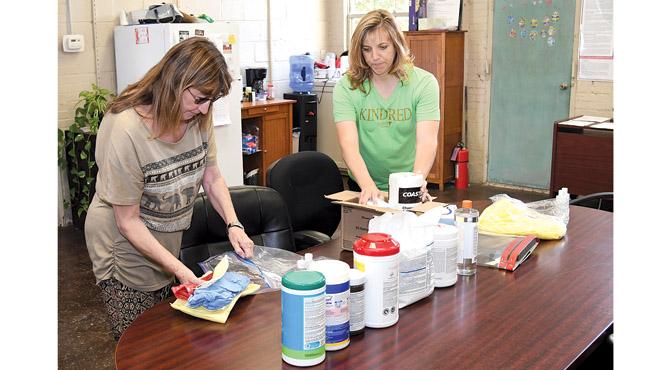Extra precautions added

By Lynsi Musselman
Home health and community care workers, along with those providing outpatient care, have made adjustments while serving patients during the coronavirus pandemic.
There are several companies and care givers that serve Albany with in-home care to local patients.
With recommendations from the CDC that older adults and those with chronic conditions practice social distancing, home health provides the care needed without the need for seniors and others to leave home.
In-home care removes the risk of unnecessary social interaction. Keeping and treating patients at home also reduces the burden on in-patient and acute care facilities.
“We take our responsibility to care for our country’s most vulnerable population very seriously and are uniquely qualified to care for our country’s seniors,” said Beth Dennis, Albany executive director at Kindred at Home.
Physical therapist and Albany resident Lacy Vier-tel works with all ages in outpatient therapy in Stamford.
“My elderly patients have dropped off,” Viertel said. “They do not want to get out. They are my favorite group, and I miss getting to see them.”
Viertel added that she was fitted for a N95 mask, and she sanitizes more often than usual. However, sanitizing has always been standard and is ingrained in her daily routine.
Viertel is in the process of opening an independent physical therapy outpatient service in Albany. She plans to be open at least twice a week to work with patients.
Misty Braly is also a local physical therapist. She works for Encompass, another company that serves the area with in-home care.
Braly said as a part of “best practice,” sanitizing all equipment between each patient has remained the same. She is wearing new protective gear with each patient as a precaution and trying to maintain a distance of six feet when possible.
“Encompass urges care givers to monitor ourselves for signs and symptoms of illness,” Braly said. “This requires taking our temperature twice daily.”
Braly noted that she tries to reassure all her patients that she is being cautious. She said not many of them have refused care.

